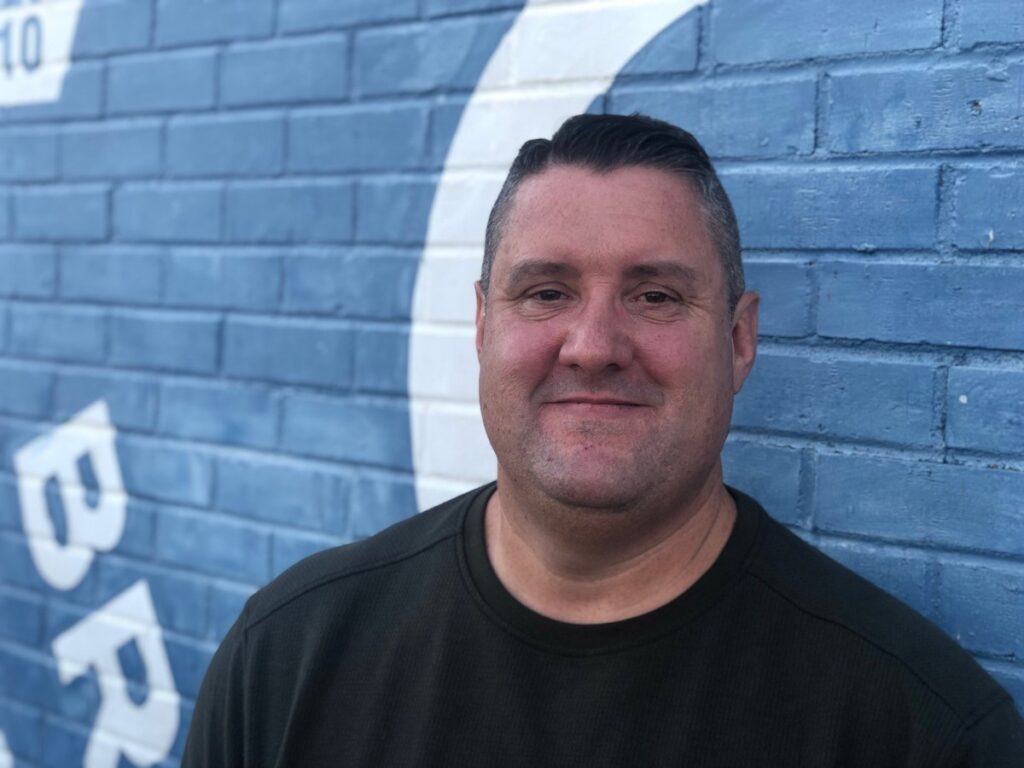Men are relatively scarce in Facebook support groups, and even when they are present, they seldom participate. What’s behind their reluctance to share their feelings?
By Brad Ewell
In Facebook groups for people with not parent expected (NPEs) or misattributed parentage experiences (MPEs), there’s a consistent large difference in the ratio of men to women. If you were a man looking to meet women, this would be a place to be. There are typically a handful of men and thousands of women. Where are all the guys? Percentage-wise there couldn’t be that many more women than men having DNA surprises. So what’s going on here?
Looking at the bigger picture, this is a fairly common phenomenon among individuals with depression, anxiety, stress, and other mental health concerns. Several studies indicate that men are typically much less likely than women to seek professional help when facing psychological distress. The study authors suggest a number of factors for the disparity, such as the fear many men have of being judged as emotionally vulnerable or weak. Researchers also point to the fact that because men are trained from an early age to compete with other men, it makes them less likely to trust each other and reveal what they may perceive as weakness.
I posed the question to several individuals who not only are behavioral health practitioners but who also have personal experience with misattributed parentage. Their thoughts generally mirror the finding of the studies, but they offered additional insights.
According to Jodi Klugman-Rabb,* a licensed marriage and family therapist and licensed professional counselor, “Sometimes it’s as simple as the gender role conditioning specific to cultural norms that men are not manly if emotional. So expressing emotions is then seen as weak, making group process emasculating. On a more micro level, emotional process can have a lot to do with the family of origin dynamics and whether kids were allowed or encouraged to explore emotions safely, how cultural gender norms influenced that, and, to take it back out on a macro level, how these expectations were transmitted intergenerationally.”
Eve Sturges,* also a licensed marriage and family therapist, agrees. “Men,” she adds, “generally are taught to look for solutions; without a direct path, they often don’t understand the benefit.” Men view support groups as a place to talk about things, but they fail to see the benefit of the emotional burden that’s released when feelings are verbally expressed.
Men also fear that a vulnerable disclosure might disrupt the peace in their relationships, whether with their mates or family members or at work, according to Cotey Bowman,* a licensed professional counselor associate.
In order to make support groups more appealing to men, these professionals say, the stigma that prevents men from seeking support and expressing emotions must be addressed at a cultural level. Until this cultural change, the best option is to allow and encourage men to see other men model vulnerability and acceptance of emotions.
After reading the studies and talking to professionals, I can see myself and the culture I was raised in fairly accurately reflected in their comments. At 50 years old, I’ve been a police officer for half of my life. Police and other first respondors are notoriously emotionally restricted at work because the job demands it, explains Jodi Klugman-Rabb. It’s very difficult, she adds, “to ask first responders to compartmentalize at work but share at home. Most cannot walk both lines because our brains are not wired for that level of compartmentalization.” It’s an apt assessment of the people I work with daily.
I was raised in an environment where the expression of emotions was an indicator of weakness. As a result, I’ve grown into a person who is self-reliant to a fault. I try to avoid having people to do things for me because I don’t want to bother them or draw attention to myself. My dad taught me the importance of being self-sufficient and tough. When you get hurt, he said, you just “rub some dirt on it” and move on.
I vividly remember several instances in my childhood when my father imparted these lessons. Once, while building a fence, he accidentally nailed the palm of his hand to a picket fence with a nail gun. My job was to go to the other side of the fence, pull his hand off the nail, and get some duct tape so he could tape his hand up and finished the fence. Another time, he lost his balance while using a chain saw on a ladder and sawed through part of his thigh. Again, I was assigned to get the duct tape so he could tape himself back up and finish the job. (I think he got some stitches, but only after we finished the job). Finally, and most memorable, was the day he broke his leg. We were riding horses in a pasture when another horse came up alongside him. The horse tried to kick my dad’s horse, but instead kicked my dad in the shin. My dad grimaced. “We need to go back,” he said. “I think my leg is broke.” We rode back a couple of miles without him making a sound; he just wore that same grimace on his face. Once we got to the stalls, we tied up the horses, got in the truck, and started to the hospital. I was in middle school and had driven a few times around where we kept our horses but never out on the street. When we got to the road, my dad stopped and said, “If I feel like I’m going to pass out, I’ll just pull over to the side of the road and switch seats so you can drive me to the hospital.” He managed the 10-mile drive to the hospital, where he allowed me to grab a wheelchair to get him into the emergency room. Inside, I watched blood pour out when the nurses pulled his boot off. It turned out he had a compound fracture.
Clearly, reaching out to others for help is not something I was taught to do.
You may be wondering, then, how have I come to be writing an article about being emotionally vulnerable in groups? Given the way I was raised and the culture I grew up and work in, this is the last place in the world I’d want or expect to find myself. I don’t consider myself particularly weak or vulnerable. My job requires the opposite of me; I have to show courage and be strong for others. I had been in therapy once several years ago for help with some anxiety and stress issues, but my therapist had moved away and I felt better, so I didn’t take the time to find another one. I addressed it more as a strategy session than as therapy. I believe this is because, as Eve Sturges explains, I was looking for that step-by-step strategy to fix my problem and I didn’t view talking about my feelings as a useful part of the steps. I also told only a handful of people in my life that I had gone to therapy. This was intentional—a decision based on the fear of being emotionally vulnerable. I simply didn’t want to be viewed as weak and I believed that would happen if people knew I was struggling with my emotions.
So what went so wrong (or right) to bring me to the point that I’m sharing personal struggles and fears out in the world for other people to see? The answer is nothing. I finally realized no matter how much I wanted to believe I could deal with everything on my own, that’s not realistic. When I discovered that I’d been adopted, I was absolutely lost and felt totally alone. My wife was supportive, but there was no one who could really relate to the depth of loss that comes with such a discovery. My wife suggested I look on Facebook and see if there were groups formed by people who had experienced something similar. It sounded like a good idea, but I thought there would only be a handful of people at best who’ve gone through this. Instead, I found a community of thousands who have all experienced the same thing. So I lurked, devouring everyone else’s stories but not sharing my own. Over time, I observed more people sharing and receiving helpful and empathetic responses, which made me start feeling safe. And that feeling of safety finally led to me being comfortable enough to participate in the groups. I told my story to strangers who shared my experience and in return they gave me good advice and empathized. And I’ve taken it farther. Now I write about my experiences to a wider audience beyond the safety of private Facebook groups. In doing so, I’ve learned that sharing my stories has been deeply cathartic and healing. Every story I tell feels like a weight lifted off my shoulders.
As I talked to other men who have joined and participate in groups, I noticed their stories were similar to mine. They grew up learning to be self-sufficient and kept their emotions under wraps. I also noticed a common theme—a duty to keep family secrets private. I know there are many other men just like me trying to navigate their way through this NPE/MPE journey, many of them trying to go it alone. While there are likely a handful of people who can make this journey alone, I believe everyone can benefit from finding a community and experiencing its benefits.
My hope is that sharing this article and my other stories will let men know there’s a direct benefit from participating in Facebook and other support groups and sharing their stories. Cotey Bowman explains that when he works in group settings with men and is vulnerable himself, this modeled behavior is then reflected back as men in the group learn it’s safe to display emotions and vulnerability as sessions continue.
Brad Ewell lives in Texas with his wife and three children. In 2019, he became a late discovery adoptee after taking a home DNA test. He feels he’s still very much in the middle of this journey and enjoys writing to help organize his thoughts and better understand his own story. Brad volunteers with Right to Know, a non-profit group dedicated to supporting people’s right to know their genetic identity. He’s told his story on two podcasts, NPE Stories and Sex, Lies, and the Truth. You can connect with him on Instagram @Brad1407, on Facebook, or email him at mpebrad@gmail.com.
Read more of his articles and essays: An Unexpected Abandonment, Dear Mom and Dad, and Watching and Waiting.

*Eve Sturges is the host of a podcast, Everything’s Relative with Eve Sturges. Jodi Klugman-Rabb is the developer of Parental Identity Discovery and the co-host of the podcast Sex, Lies & the Truth. Cotey Bowman is the creator of the MPE Counseling Collective.
BEFORE YOU GO…
Look on our home page for more articles about NPEs, adoptees, and genetic genealogy.
- Please leave a comment below and share your thoughts.
- Let us know what you want to see in Severance. Send a message to bkjax@icloud.com.
- Tell us your stories. See guidelines.
- If you’re an NPE, adoptee, or donor conceived person; a sibling of someone in one of these groups; or a helping professional (for example, a therapist or genetic genealogist) you’re welcome to join our private Facebook group.
- Like us on Facebook and follow us on Twitter and Instagram @Severancemag.

